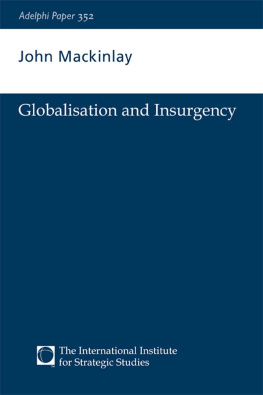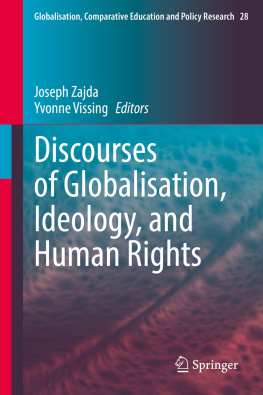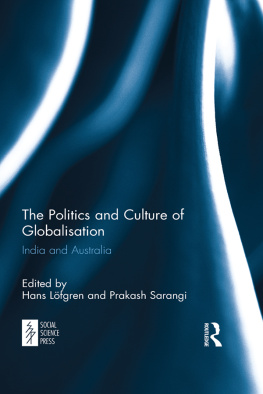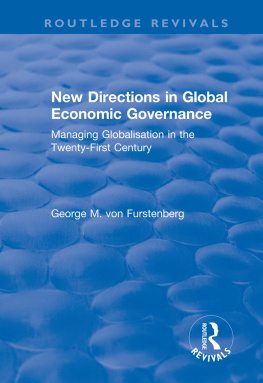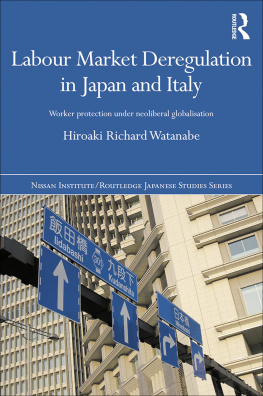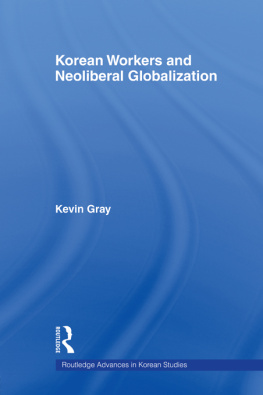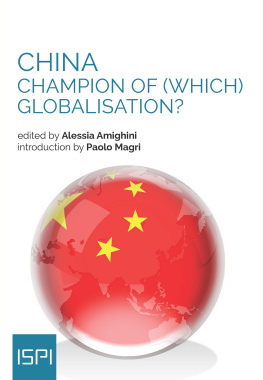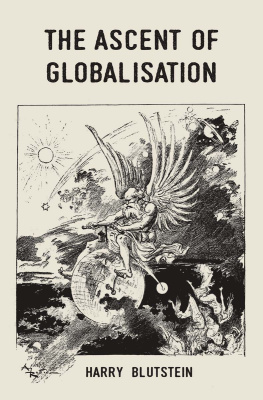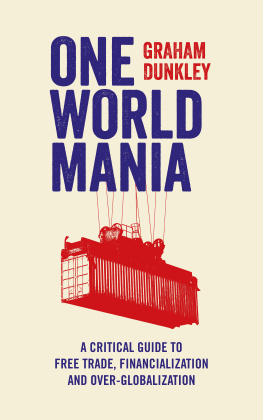Globalisation and ideology in Britain
Globalisation and ideology in Britain
Neoliberalism, free trade and the global economy
Craig Berry
Copyright Craig Berry 2011
The right of Craig Berry to be identified as the author of this work has been asserted by him in
accordance with the Copyright, Designs and Patents Act 1988.
Published by Manchester University Press
Oxford Road, Manchester M13 9NR, UK
and Room 400, 175 Fifth Avenue, New York, NY 10010, USA
www.manchesteruniversitypress.co.uk
Distributed in the United States exclusively by
Palgrave Macmillan, 175 Fifth Avenue, New York,
NY 10010, USA
Distributed in Canada exclusively by
UBC Press, University of British Columbia, 2029 West Mall,
Vancouver, BC, Canada V6T 1Z2
British Library Cataloguing-in-Publication Data
A catalogue record for this book is available from the British Library
Library of Congress Cataloging-in-Publication Data applied for
ISBN 978-0-7190-8488-1
First published 2011
The publisher has no responsibility for the persistence or accuracy of URLs for any external or third-party internet websites referred to in this book, and does not guarantee that any content on such websites is, or will remain, accurate or appropriate.
Typeset
by 4word Ltd, Bristol
Printed in Great Britain
by CPI Antony Rowe Ltd, Chippenham, Wiltshire
To Mum, Dad and Laura
We are in the presence of a holistic ideological contender. Whether this will turn out to be an ideological pretender or a new ideological family is an empirical question that will be resolved by the manner in which its discourse is institutionalized and broadly adopted, and the degree to which it can provide satisfying answers to the basic political questions.
Michael Freeden,
Ideological boundaries and ideological systems, 2003
Preface and acknowledgements
This book has its origins in my doctoral thesis, which I undertook in the Department of Politics at the University of Sheffield. While the book is an updated and revised version of the thesis, the analysis remains the same. By the late 1990s, the term globalisation had become ubiquitous in British politics, especially in New Labours discourse. While this itself was not unknown to political scientists, I was convinced that precisely why the concept of globalisation in particular had become so important had not been fully explored. Many argued that the term was a mask for neoliberalism; but if so, why this mask rather than some other? Moreover, could it be the case that the idea of globalisation led actors like New Labour to neoliberal policies, rather than vice versa? What was left under-investigated, in my opinion, was how the concept of globalisation related to extant ideas in British politics such as those associated with the socialist and liberal traditions.
Among many political economists, the why question has in fact been answered fairly decisively: political actors talk about globalisation because it is shorthand for the massive economic changes the world has experienced in recent decades. Of course, few have expressed this argument so clinically. The silent assumption is essentially a product of a tendency to reduce the ideas upheld by agents to their experience of structure and their associated material interests. This is an analytical hierarchy I intuitively reject, not least because I think it fails to demonstrate how structural changes (such as global economic change) come about. So my research set out to explore what globalisation really means to British political actors, whether it means different things to different actors and how these meanings are implicated in the political actions including policy-making that contribute to the transformation and reproduction of structure.
The support and advice of my PhD supervisor Michael Kenny during my research was invaluable. His thoughts on my work were always challenging, yet expressed with genuine kindness and humour. A great many others have helped me along the way, including Sarah Cooke, John Hobson, Colin Hay, Ben Rosamond, Matthew Watson, Andrew Gamble, Kees van der Pijl, Nicola Phillips, Kevin Gillan, Clive Gabay, Adam White, Ben Richardson, Andrew Mumford, Colin Wray, Chris Atkinson, Laura McLeod, James Simpkin, Antony Ou, Richard Dunne and Ursula Le Guin. I am also grateful to the University of Sheffield for funding my doctoral research, Manchester University Press for their support throughout the writing of this book, the anonymous reviewers for many helpful suggestions and the many individuals and organisations that participated in my fieldwork.
I owe a large thank you to my family for all their support over the last few years, particularly Mum and Dad, and to my wifes parents Colin and Mary. My greatest debt, however, belongs to my best friend and guardian angel, Laura White.
List of abbreviations
|
|---|
BERR | Department for Business, Enterprise and Regulatory Reform |
CAP | EU Common Agricultural Policy |
CCP | EU Common Commercial Policy |
CMI | commodity management initiative |
DDA | Doha Development Agenda |
DfID | Department for International Development |
DTI | Department of Trade and Industry |
EU | European Union |
FDI | foreign direct investment |
G8 | Group of Eight |
G20 | Group of Twenty |
GATS | General Agreement on Trade in Services |
GATT | General Agreement on Trade and Tariffs |
GDP | gross domestic product |
GR | Globalise Resistance |
IFSL | International Financial Services, London |
IMF | International Monetary Fund |
IOU | I owe you |
IPE | international political economy |
IR | international relations |
IST | International Socialist Tendency |
LOTIS | Committee on Liberalisation in Trade in Services |
MDG | UN Millennium Development Goals |
MPH | Make Poverty History |
OECD | Organisation for Economic Co-operation and Development |
PPP | public-private partnership |
PWC | post-Washington consensus |
SDP | Social Democratic Party |
SDT | |



